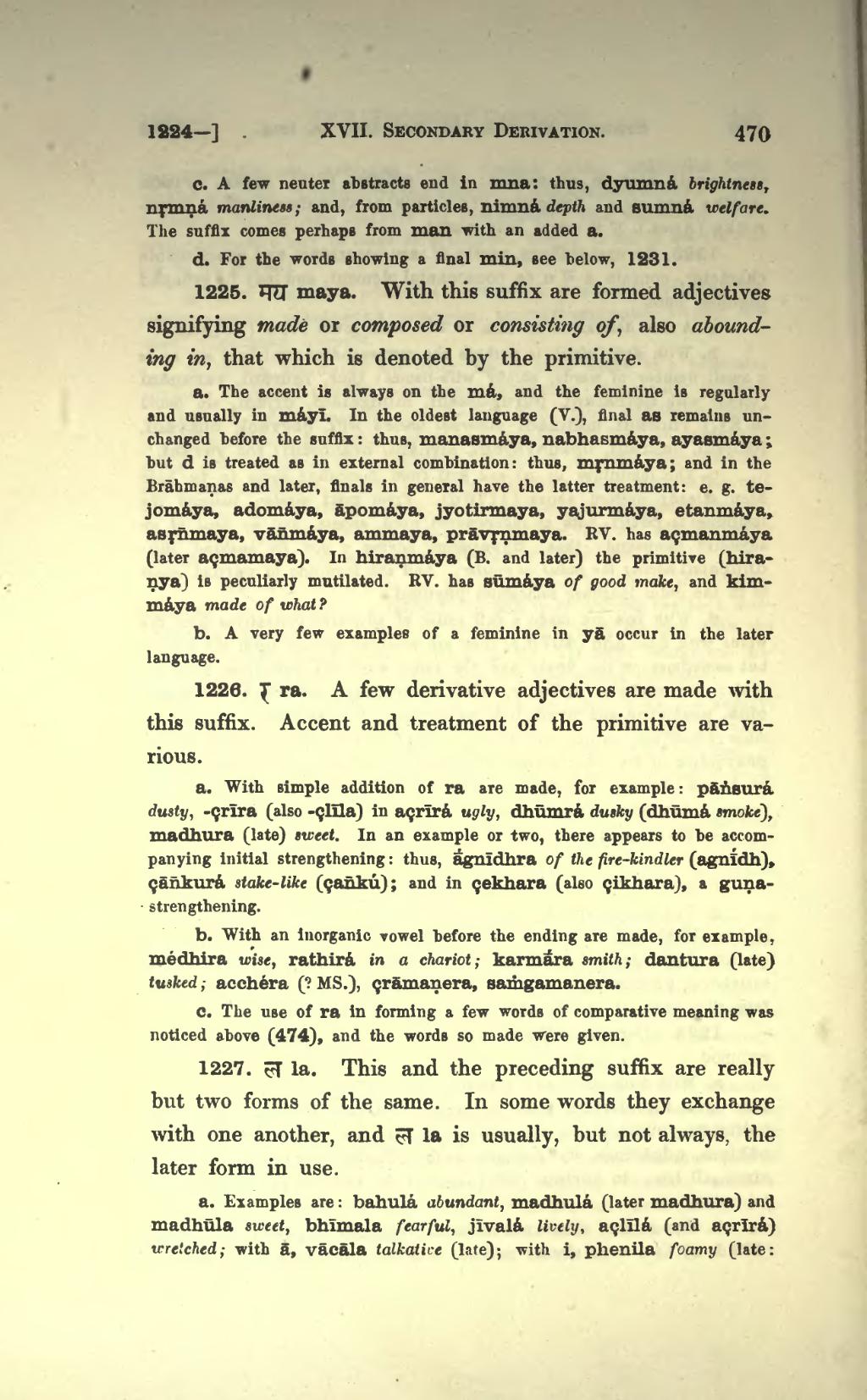c. A few neuter abstracts end in mna: thus, dyumná brightness, nṛmṇá manliness; and, from particles, nimná depth and sumná welfare. The suffix comes perhaps from man with an added a.
d. For the words showing a final min, see below, 1231.
1225. मय maya. With this suffix are formed adjectives signifying made or composed or consisting of, also abounding in, that which is denoted by the primitive.
a. The accent is always on the má, and the feminine is regularly and usually in máyī. In the oldest language (V.), final as remains unchanged before the suffix: thus, manasmáya, nabhasmáya, ayasmáya; but d is treated as in external combination: thus, mṛnmáya; and in the Brāhmaṇas and later, finals in general have the latter treatment: e. g. tejomáya, adomáya, āpomáya, jyotirmaya, yajurmáya, etanmáya, asṛn̄maya, vān̄máya, ammaya, prāvṛṇmaya. RV. has açmanmáya (later açmamaya). In hiraṇmáya (B. and later) the primitive (hiraṇya) is peculiarly mutilated. RV. has sūmáya of good make, and kimmáya made of what?
b. A very few examples of a feminine in yā occur in the later language.
1226. र ra. A few derivative adjectives are made with this suffix. Accent and treatment of the primitive are various.
a. With simple addition of ra are made, for example: pāṅsurá dusty, -çrīra (also -çlīla) in açrīrá ugly, dhūmrá dusky (dhūmá smoke), madhura (late) sweet. In an example or two, there appears to be accompanying initial strengthening: thus, ā́gnīdhra of the fire-kindler (agnī́dh), çān̄kurá stake-like (çan̄kú); and in çekhara (also çikhara), a guṇa-strengthening.
b. With an inorganic vowel before the ending are made, for example, médhira wise, rathirá in a chariot; karmā́ra smith; dantura (late) tusked; acchéra (? MS.), çrāmaṇera, saṁgamanera.
c. The use of ra in forming a few words of comparative meaning was noticed above (474), and the words so made were given.
1227. ल la. This and the preceding suffix are really but two forms of the same. In some words they exchange with one another, and ल la is usually, but not always, the later form in use.
a. Examples are: bahulá abundant, madhulá (later madhura) and madhūla sweet, bhīmala fearful, jīvalá lively, açlīlá (and açrīrá) wretched; with ā, vācāla talkative (late); with i, phenila foamy (late:
